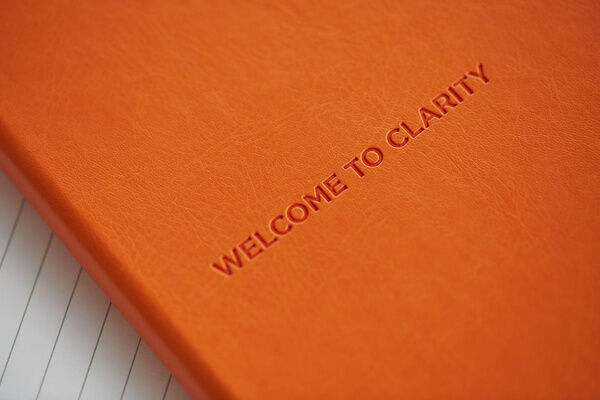It is the height of the holiday season with many people taking flights to hotter climes to enjoy a relaxing break from their usual routine. Unfortunately holidays do not always have a relaxing beginning or end due to flights being delayed or, even worse, being cancelled. In these circumstances, what rights, if any, do you have to claim compensation?
Is your flight within or outwith the EU?
Your right to claim compensation from the airline for cancellations or delays depends to an extent on whether you are flying within the European Union (EU) or not. You will be deemed to be flying within the EU if your flight either departs from an airport located in an EU member state or departs from a third country but its destination is an airport in an EU member state. The flight must also be with an EU airline if departing from a third country.
Unfortunately if you are flying outwith the EU your rights following a flight delay or cancellation depend on the terms and conditions of the contract you have with the airline. In general airlines base their terms and conditions on those recommended by the International Air Transport Association. This means that most airline terms and conditions will state that the airline must offer passengers a choice between a later flight, mutually agreed alternative transportation or a refund, however this is not guaranteed.
Flights within the EU
The position is clearer if your flight is within the EU. In this situation, EU legislation means that you are entitled to claim compensation if your flight is cancelled unless certain exceptions apply. One such exception is where the airline informs you of the cancellation at least two weeks before the scheduled time of departure. Another significant exception is where the cancellation is due to extraordinary circumstances which could not have been avoided even if all reasonable measures had been taken. Therefore in these situations there is no right to claim compensation.
In addition the European Court of Justice has ruled that where an EU flight is delayed for three hours or more there is a right to claim compensation, unless the delay was as a result of extraordinary circumstances.
What is an "extraordinary circumstance"?
An extraordinary circumstance is something which is not inherent in the normal exercise of the activity of the airline and is outside of the airline’s control. Guidance issued by the EU states that to be an extraordinary circumstance it must be unpredictable, unavoidable and external. Therefore this includes things such as acts of terrorism or where weather conditions are incompatible with the safe operation of the flight or where there are industrial strikes which affect the operation of the flight, for example Air Traffic Control strikes. Further examples of what constitutes an extraordinary circumstance can be found here.
One issue which has arisen is the circumstances in which a technical fault can be deemed an extraordinary circumstance. The European Court of Justice has held that technical faults will only fall into this category where the problem stems from events which, by their nature or origin, are not inherent in the normal exercise of the activity of the air carrier concerned and are beyond its actual control. Therefore the resolution of a technical problem caused by failure to maintain an aircraft would not normally amount to an extraordinary circumstance.
In the case of Jet2 v Huzar the UK Court of Appeal has recently confirmed this approach by ruling that whether a technical fault amounts to an extraordinary circumstance depends upon the cause of the fault. Therefore if the cause was not something out of the ordinary, for example the failure of a component or wear and tear, then it would not be an extraordinary circumstance.
In deciding whether this exception applies it must also be considered whether reasonable steps could have been taken by the airline which would have avoided the cancellation or delay. Therefore, for example, if there is an Air Traffic Control strike and it appears that the airline did not put in place reasonable measures which would have avoided the delays or cancellations caused, you may still be able to claim compensation.
How much compensation can you claim?
If your claim for compensation is successful the amount you will receive depends upon whether your flight is classed as a short, medium or long haul flight.
Short haul flights are those of 1,500 kilometres or less (for example London to Paris) and the compensation available is 250 euros per person. If your flight departs and lands in an EU member state and is more than 1,500 kilometres it is classed as a medium haul flight. Medium haul flights also include those flights which only either depart or land in an EU country and the flight is between 1,500 and 3,500 kilometres (such as London to Algiers). The compensation payable for medium haul flights is 400 euros per person. All other flights are long haul flights and the compensation available is 600 euros per person (such as London to New York).
How to make a claim?
You need to contact your airline directly in order to make a claim for compensation. Many airlines will have procedures in place to allow you to do this. Information on these procedures will probably be available on the airline's website or by contacting them directly. By following the airline's procedure you should be told what information is required by the airline to process your claim. However where there is no standard procedure in place and you are therefore required to either email or write to the airline, make sure you provide as much information as possible. Also keep a copy of any communications you send.
If your claim is rejected by the airline you can contact the Civil Aviation Authority (CAA) and ask that they escalate your claim. To do this you simply complete the online form and the CAA will then investigate your claim and contact your airline to resolve the matter where they believe your claim is valid.
Helpful advice on making a claim to your airline can be found on the CAA's website.
What other rights do you have?
In addition to the possibility of claiming compensation, where your flight is within the EU, you have certain other rights in the event your flight is delayed or cancelled.
In general if your flight is cancelled you have to be given the choice between receiving a refund for all parts of the ticket not used and choosing an alternative flight. If you choose to take an alternative flight you may not be able to claim compensation or your compensation may be reduced depending on how long before your scheduled departure time you leave and how long after your scheduled arrival time you land.
If your short haul flight is delayed for more than two hours the airline must provide you with care and assistance. This means you should be provided with a reasonable amount of food and drink, a means for you to communicate, accommodation if you are delayed overnight and transport to and from any accommodation. The airline should also provide such care and assistance where your medium or long haul flight is delayed for more than three or four hours respectively.
More information
The CAA's website has a lot of helpful information on your rights upon your flight being delayed or cancelled. Sometimes, however, (as our clients will attest) what really helps is a letter from a lawyer. So, if you would like any advice or assistance with your dispute with an airline or travel company due to a delayed or cancelled flight, please do not hesitate to get in touch.
The content of this webpage is for information only and is not intended to be construed as legal advice and should not be treated as a substitute for specific advice. Morton Fraser LLP accepts no responsibility for the content of any third party website to which this webpage refers. Morton Fraser LLP is authorised and regulated by the Financial Conduct Authority.










